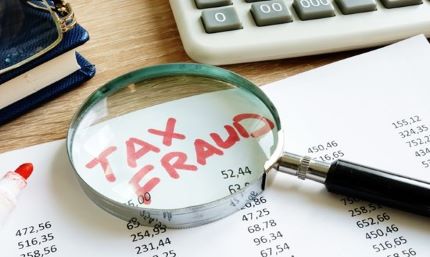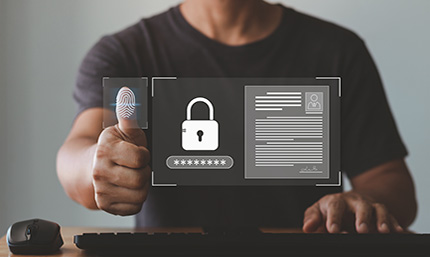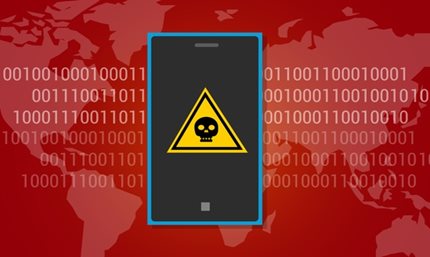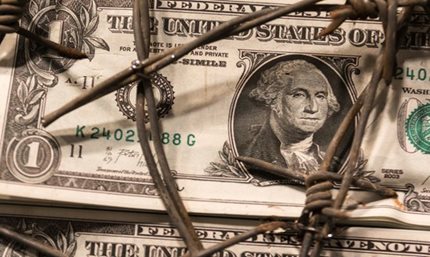As your friendly, yet fiercely protective financial Watchdog, we’re all about raising awareness about the different types of fraud that are out there and what measures you can take against them. Here are 11 popular scams to watch out for.
1. Phishing & Vishing Fraud
Don’t fall for scams hook, line, and sinker—like phishing scams. Phishing scams occur when an email from an external source appears similar to emails that usually come from established and trusted businesses. The hackers use technology to make their emails appear as if they are coming from a financial institution or credit card company. The email messages and web links can try and deceive you by using the real logo of a company as well as its web pages to steal sensitive information, like passwords, account or credit card information. Stay vigilant and never give up personal or account information via email.
Vishing is the telephone equivalent of phishing. For instance, a caller will ask a member to verify authenticity or provide personal information. However, the vishing scammer will not hang up, but instead play a recorded dial tone to make the victim believe that he is still on a real call.
2. Spoofing Phone Numbers
A common vishing tactic is spoofing. Spoofing phone numbers is when a caller falsifies their name/phone number that displays on your caller ID to disguise their identity. Scammers do this to look like the phone number is coming from someone you know, a local number, a government organization, or a well-known company. They do this to steal personal and financial information from you for fraudulent activities. Be sure to never give out your full account number, Social Security numbers, passwords, or other identifying information over an unexpected call. If you receive an incoming call that seems suspicious, please do not hesitate to end the call immediately and call us directly to report.
SCCU will never solicit personal or account information through a phone call that a member did not first initiate.
3. Contest and Lottery Scams
Another popular trick is the “Contest Winner” scam. In this contest, you can lose big. Potential victims may get contacted and told they have won a special prize, contest, or lottery. In order to claim their prize, they must send a certain amount of money or provide account information so that funds can be direct deposited into their accounts. Some scammers will go as far as asking for a cashier’s check or requesting a money order to be made to claim the prize. Either way, you can lose your hard-earned money. No legitimate prize venue would ask for personal information or money in order to collect a prize.
4. Driver’s License Identity Theft
Driver’s license theft is a form of ID theft that occurs when a fraudster looks to impersonate someone. A driver’s license contains personal details that can make a thief appear credible when attempting to purchase goods with a fixed age limit or when interacting with a police officer. A stolen driver’s license can enable a thief to perform criminal acts causing a victim trouble without trackable evidence. It's important to consider adding an initial security alert to credit files when a driver license gets stolen.
5. Mail Identity Theft
Mail fraud ranks among the oldest criminal schemes used to acquire personal information. In some cases, thieves steal mail with sensitive data and retrieve financial account information to make purchases, open new accounts, and they may go as far as changing the address on a victim’s statements or bills. In other instances, monetary value is acquired in exchange for an undelivered product, service, or investment opportunity.
The U.S. Postal Office advises anyone who believe that their mail has been stolen or believe to be a victim of mail identity theft to file a complaint with the Mail Fraud division.
6. Debit Card or Credit Card Fraud
Debit card or credit card fraud happens when an unauthorized purchase is made after a card was stolen. The more devious and skilled criminals can steal a credit card number, PIN, and security code to make unauthorized transactions without needing to have the actual card in-hand. It may take a while to detect these unlawful transactions. In some cases, it may be too late to realize that an account has been completely drained. We advise our members to closely monitor their accounts with online banking to stay on top of unfamiliar transactions. Again, it’s also why we ask members to give us their most up to date contact information so we can alert them to any suspicious activity.
7. Online and Mobile Shopping Fraud
With the rise of e-commerce, fraudsters are scamming billions of dollars online. Online shopping fraud occurs when bank or credit card data are used to wrongfully process retail transactions without the account owner’s knowledge. Fraudsters may request money to be sent through funds transfer applications such as Venmo, Zelle, or the Cash-App, and completely disappear upon receipt of the funds. A common rule to abide by is to never make a transaction on an unfamiliar website, or to never complete a payment to an unfamiliar recipient through a funds transfer app. Also look for the “s” in the web address “https" and for a padlock next to it. These mean that the site is more likely to be a secure one.
8. Social Security Number Identity Theft
Social Security number identity theft may happen as a result of data breaches or a Tax ID theft. Signs of identity or Tax ID theft include noticing mail that lists the wrong last four digits of a social security number, wrong names, and addresses. Request a free credit report upon detection of signs of a Social Security identity theft by going to
annualcreditreport.com to review your free annual credit report from each of the three nationwide credit reporting agencies.
9. Synthetic Identity Theft
To get what they want, criminals will create an entirely fake person using a combination of real and fabricated consumer information. A synthetic thief may use a variation of names, Social Security numbers, addresses, and other information found on the dark web to commit a crime. Common signs of synthetic theft include phone calls or mail in regards to new credit accounts or receiving mail that are addressing different names.
10. Account Takeover Identity Theft
In this scenario, fraudsters gain access to a victim’s bank or credit card accounts to retrieve funds, or to obtain products and services. Account takeover identity theft is usually due to data breaches, phishing scams, and malware attacks.
New account takeover is also a form of identity fraud, which occurs when new accounts are generated with information obtained from data breaches. It is a combination of synthetic and account takeover identity theft. If a site that has your information experiences a data breach, your information may not be secure. Take action.
11. Employment Identity Theft
Employment identity theft occurs when a criminal uses someone else’s personal information like a social security number or an ID to obtain a job. They get paid, but don’t report the income to the IRS, which means victims may experience trouble with the government for falsely reported income. Reviewing an annual credit report will help identify unfamiliar income reported by fraudsters. Go to
annualcreditreport.com to review your free annual credit report from each of the three nationwide credit reporting agencies.
Protect Yourself!
While eliminating the risk of fraud completely may be virtually impossible, there are plentiful measures one can apply to minimize the risk of being victimized:
- Avoid sharing personal information
- Avoid the purchase of goods on unfamiliar websites
- Beware of pre-recorded dial tones
- Consider initial security alerts to credit files
- Consult with the U.S. Postal Office Mail Fraud Division
- Destroy documents containing personal information
- Monitor accounts using online banking and enroll in eStatements
- Never complete a payment to an unfamiliar recipient
- Verify the legitimacy of prizes and contest rewards
- Request a free credit report
At SCCU, we advise our members to never respond to any unsolicited requests for personal or account information.



















